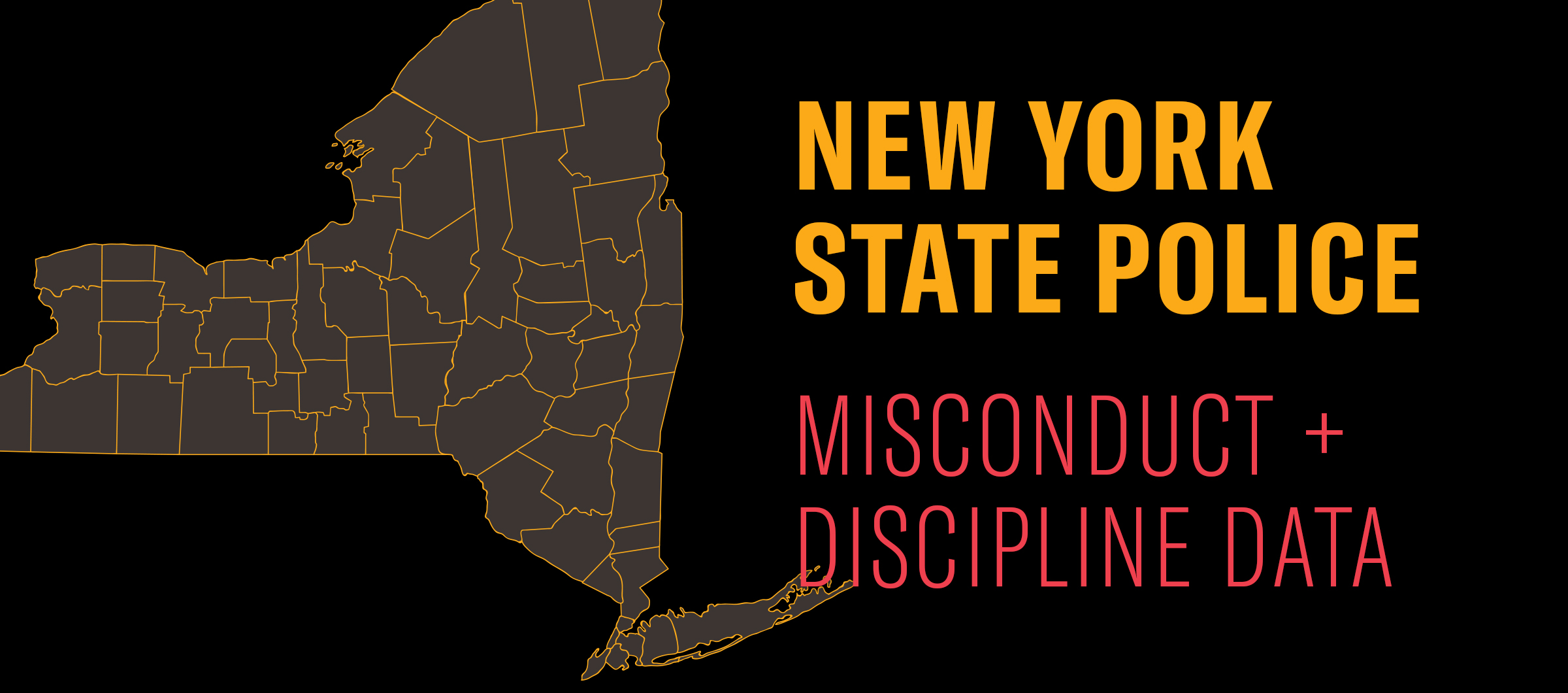New York State Police — Use-of-Force Data
Civil Liberties Union

The NYCLU analyzed over 18,000 records detailing the New York State Police’s misconduct investigations and disciplinary outcomes from 2000 to 2020. The investigations include misconduct related to civilian-police interactions, like unlawful searches, and personnel violations that are internal to the department, like insubordination. Each “investigation” refers to an individual act of alleged misconduct, meaning multiple investigations may stem from a single “incident” where misconduct occurred. The analysis revealed the following:
The NYSP’s entire disciplinary investigative process is internal. This means that the department effectively gets to police itself. No outside entity is responsible for deciding if misconduct took place and, if so, what discipline an officer should face. All of these determinations are made by authorities internal to the NYPSP. As we have seen time after time in countless police departments across the country, when police are asked to police themselves, officers are rarely held accountable for misconduct. The NYSP is no exception.
Below are further details on the investigative process.
The Professional Standards Bureau (PSB) is a division of the NYSP that investigates allegations of misconduct by NYSP employees and decides whether misconduct occurred.1 Depending on the severity of the alleged misconduct, investigations may be conducted by a designee of the officer’s troop/division commander or by the PSB themselves. Misconduct investigations are determined to be “founded” when “the facts substantiate the specific allegation(s) made or other misconduct,” “unsubstantiated” when “insufficient facts exist to either prove or disprove the allegation(s) made, and “unfounded” in a case when “the facts [that] substantiate the allegation(s) made are false.” Investigations can also be “closed by investigation,” which means they are dismissed by the NYSP.
If an investigation is deemed to be founded, the troop Commander or the First Deputy Superintendent of the NYSP determines the disciplinary penalty. If administrative charges are warranted, an administrative hearing is conducted where a panel of three NYSP members submits investigation findings and determines the disciplinary penalty.
The misconduct records that the NYCLU received include summaries of misconduct investigations conducted by the PSB between 2000 and 2020 and the disciplinary penalties that were imposed in founded cases. Each summary is limited to a single phrase describing the alleged misconduct and the discipline imposed, respectively.
The records include information about 18,233 officer misconduct investigations that occurred between 2000 and 2020. Of the 18,233 investigations, 41 percent (7,476) were founded, 23 percent (4,282) were unsubstantiated, meaning that the PSB did not have enough evidence to determine if the act constituted a policy violation, 23 percent (4,167) were unfounded, and 12 percent (2,170) were “closed by investigation.”2
Investigations of alleged misconduct that appear to be against civilians were founded at very low rates.3 For example:
Officers found to have committed misconduct rarely received serious discipline. Of the 7,476 founded investigations, five percent of officers received no discipline, 52 percent received a slap on the wrist (reprimand, censure, or counseling), 16 percent lost vacation days, 13 percent were suspended without pay, 10 percent were placed on probation, one percent received a reduction in rank, two percent were terminated, and one percent received some other type of discipline.4